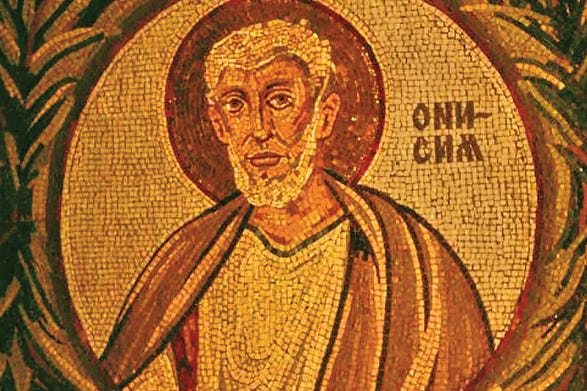The Cost of Forgiveness
Five Principles for Christian Forgiveness
This essay explores five gospel principles to unpack the costly yet liberating power of forgiveness: forgiveness as a divine gift, a promise over feelings, extending to the unrepentant, not erasing consequences, and reflecting Christ’s love.
The Transformative Power of Forgiveness
The Book of Philemon, a concise 335-word epistle in the Greek text, is one of the shortest books in the Bible, yet it carries profound significance. Often overlooked, this open letter from the Apostle Paul to Philemon, a wealthy believer hosting a church in Colossae, unveils a compelling narrative of forgiveness and reconciliation. Written during Paul’s imprisonment, likely in Rome, Philemon addresses a personal matter with public implications, offering lessons that resonate deeply with Christians today. At its heart, the letter explores how the gospel transforms relationships, demanding forgiveness even when it costs us dearly. By examining the story and its implications, we uncover practical applications for living out forgiveness in our own lives.
The Backstory of Philemon
The story embedded in Philemon revolves around three key figures: Paul, Philemon, and Onesimus. Paul, imprisoned for preaching the gospel, writes to Philemon, a man he led to Christ during a missionary journey in Colossae. Philemon, a godly and generous believer, hosts the church in his home, indicating his wealth and influence (Philemon 1:1-2). Onesimus, a bondservant (or “slave”) of Philemon, had fled his master, possibly stealing from him, and made his way to Rome, some 1,200 miles away. There, in a remarkable turn of providence, Onesimus encountered Paul, who shared the gospel with him, leading to his conversion. Paul grew fond of Onesimus, calling him “my very heart” (v. 12), but discovered he was Philemon’s runaway slave. This connection prompted Paul to send Onesimus back with a letter appealing to Philemon to forgive and receive him as a brother in Christ (vv. 16-17).
The Costly Duty of Obedience
Each man faced a costly duty to Christ. For Paul, sending Onesimus back meant losing a valuable companion (vv. 10-13). For Onesimus, returning risked severe punishment under Roman law, yet his new faith compelled him to seek reconciliation (v. 12). For Philemon, forgiveness required absorbing the emotional and financial losses from Onesimus’ actions, receiving him not as a slave but as a beloved brother (vv. 15-18). Paul’s message was not a direct command, but a diplomatic appeal to Philemon, saying, “for love’s sake I prefer to appeal to you” (v. 9). His confidence in Philemon’s character (v. 21) underscore the voluntary, grace-filled nature of this reconciliation, a model rooted in the gospel.
Applying Forgiveness Today
The story of Philemon offers rich lessons for applying forgiveness in our lives, a theme central to the Christian faith. Here are five expanded applications drawn from this narrative, each illuminating the costly yet transformative power of the gospel.
#1: The Power of Forgiveness is the Gospel
Forgiveness is not a natural human instinct. True forgiveness is only possible as a divine gift, enabled by the gospel. In other words, we forgive because we have been forgiven—an act rooted in Christ’s sacrifice on the cross. Ephesians 4:32 commands, “Be kind to one another, tenderhearted, forgiving one another, as God in Christ forgave you.”
In the Lord’s prayer, forgiveness is presented as a debt. “Forgive us our debots, as we also have forgiven our debtors” (Matt 6:12). When someone sins against you, their sin has cost you something, creating a debt. Vengeance is making them “pay” for what they did in some way. Forgiveness is refusing to exact a price from them, but rather, paying the debt yourself.
This stands in stark contrast to the world’s approach, where vengeance reigns because there’s no recognition of divine forgiveness. The secular notion of forgiveness often borrows from Christian roots, but apart from Christ, it lacks foundation or power. For believers, forgiveness flows from a wellspring of grace we’ve received, not from our own strength.
Consider your life: someone has wronged you—perhaps a friend, family member, or coworker. The gospel doesn’t just suggest forgiveness; it demands it, equipping us with the Holy Spirit’s power to obey. No matter the offense, we’ve been forgiven infinitely more by God, a truth that reframes every grievance.
#2: Forgiveness is a Promise, Not a Feeling
Forgiveness isn’t about mustering warm emotions; it’s a deliberate promise to forgo vengeance and absorb the cost of another’s sin. Feelings fluctuate. Today you might feel gracious, tomorrow you might feel bitter again. True forgiveness is a commitment of the will, encompassing thoughts, words, and deeds.
If someone sins against you, perhaps through a harsh word or betrayal, your instinct is to make them pay, perhaps by withholding kindness or nursing anger. Vengeance (or unforgiveness) is getting “payback” for the debt they owe. It could be through (1) stewing on what they did by replaying the event in your mind, keeping the grievance fresh, (2) telling others what they did, making them pay for what they did by soiling their reputation, or (3) bringing it up to them directly, reminding them of their sin so you retain the upper hand relationally. I heard someone once say, “forgiveness is giving up the possibility of a better past.”
Forgiveness does the opposite. It means refusing to stew in resentment, gossip about the offender, or seek repayment, even though your heart screams for justice. You’ve been sinned against, they “owe” you a debt, but you’re choosing to absorb the cost yourself, relinquishing the thrill of righteous indignation. Romans 12:19 instructs, “Never avenge yourselves, but leave it to the wrath of God.” This shift from vengeance to grace mirrors Christ’s example and requires us to trust God with justice.
#3: Forgiveness Must Even Extend to the Unrepentant
One of the hardest truths is that we must forgive even those who don’t repent or acknowledge their wrong. Most offenders won’t come humbly seeking forgiveness; they may justify their actions or remain oblivious to the harm done. The fact of the matter is this: the Christian duty of forgiveness isn’t about them, it’s about you. If they do not repent or acknowledge their wrong, that does not justify unforgiveness on your part. You must “leave it to the wrath of God.” God will deal with them in his own way.
In Matthew 6:14-15, Jesus warns, “If you forgive others their trespasses, your heavenly Father will also forgive you, but if you do not forgive others their trespasses, neither will your Father forgive your trespasses.” This isn’t about earning God’s forgiveness but reflecting it. Unforgiveness poisons the soul, breeding bitterness that festers over time.
Think of a parent, spouse, or friend who hurt you and never apologized. Holding onto that grudge chains you to the past, while forgiving them frees you to heal. It’s not easy—it may feel unjust—but it’s a command that prioritizes your spiritual health over their accountability.
In such cases, one of the most healing things you can do is to simply “let it go.” To do so is not to abandon justice, but to shift the burden of bringing justice from yourself and onto God.
#4: Forgiveness Does Not Eliminate the Consequences of Sin
Forgiveness doesn’t always erase the natural consequences of sin, nor should it. A murderer may be forgiven by a victim’s family yet still face prison; a broken trust may not restore a relationship. Crimes demand justice, and the state, as God’s instrument (Romans 13:4), upholds consequences.
Similarly, personal sins may leave scars that alter relationships, even if forgiveness is granted. In Philemon, Onesimus faced the consequence of returning to Philemon, but Paul’s appeal shifted the outcome from punishment to reconciliation.
Put differently, forgiveness is mandatory, but reconciliation depends on wisdom and circumstances. For example, if a spouse is abusive, forgiveness is required, but returning to danger isn’t. Seek godly counsel to navigate these nuances, but never let consequences become an excuse to withhold grace. The gospel forgives without negating discipline, a balance we must emulate.
#5: Forgiveness Reflects Christ’s Costly Love
Ultimately, forgiveness mirrors the cost Christ paid for us. No one has sinned against us more than we’ve sinned against God. The cross is where offenses against an infinite God are met with infinite grace. Jesus absorbed God’s wrath on the cross, not seeking vengeance but offering reconciliation. Philemon’s trio—Paul sacrificing companionship, Onesimus risking punishment, Philemon absorbing loss—echoes this pattern. When you forgive, you’re not just letting go; you’re embodying Christ’s love.
Picture a wound you carry: maybe a decades-old betrayal or a fresh slight. Your flesh craves payback, but the Spirit whispers, “look to the cross,” where Jesus paid your debt, clothing you in his righteousness (2 Corinthians 5:21). This truth empowers you to forgive, not by sheer willpower, but Spirit-empowered grace. As you face forgiveness today, remember: you’ve been forgiven more than you’ll ever need to forgive. Let that sink in, and let it fuel your obedience.
Conclusion
Philemon, though brief, encapsulates the gospel’s transformative power, turning a master and slave into brothers through forgiveness. Paul, Onesimus, and Philemon each bore a cost to obey, reflecting the costly love of Christ. For us, forgiveness is both a duty and a gift—demanding yet liberating, painful yet healing. Whether it’s a minor offense or a life-altering wound, the gospel equips us to forgive, promising not to seek vengeance but to extend grace. As we live this out, we testify to a world desperate for reconciliation that true forgiveness begins at the cross, where Christ paid it all. Fix your eyes on Him, and let His forgiveness flow through you.
King’s Domain Conference - Singles Mixer!
One thing I hear over and over these days is how challenging it can be for godly, single men and women to meet like-minded Christians. We want to make that easier at this year’s King’s Domain Conference (May 8-10 in Cincinnati).
And this year’s singles mixer has gotten a HUGE upgrade.
First, we are hosting the singles mixer conveniently at our new church property, making it a seamless transition from the conference to the mixer in a comfortable social space.
Secondly, we’re making it easy to meet people and make new friends by doing a “contra dance.” Don’t worry, we’re not turning the church into a night club. The contra dance features a “caller” who will teach a few dances in an enjoyable and fun way (think Scottish square dance). Google it.
Finally, this sort of conference is an ideal place to do a singles mixer because the speaker lineup will attract like-minded people.
There’s a $5 cover charge for the singles mixer, applied at registration.
Check out our website for registration and more about the King’s Domain Conference, Future Proof Christianity, this May 8-10.
Sponsor the Event
Would you like to sponsor the conference? Your business can make a $250 tax-deductible qualified sponsorship payment and receive a complimentary ticket. Make a donation at this link and we'll follow up with you. For more info, inquire at events@ctkcincy.com.






Good post..
It makes me think of a book I read 30+ years ago. It used the Bible and extra biblical sources to get more details on Onesimus *abd to a lesser extent Philemon and Paul) and cultural details and turned it into a riveting story. Clearly some details wrte added to make the story exciting, but I think it did a good job of helping us to understand the situation all 3 were in. I wish I remembered the name of the book, but my house was vaporized by a wind fueled grass fire almost a decade ago so I list my books.